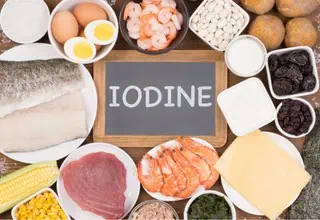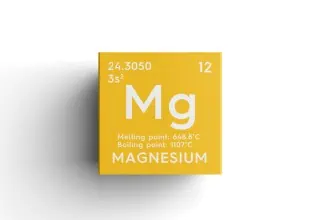
Iodine has beneficial anti-estrogenic effects that can relieve breast pain, ovulation pain, and premenstrual mood symptoms. It may also help prevent ovarian cysts by promoting healthy estrogen metabolism, down-regulating estrogen receptors, and stabilizing estrogen-sensitive tissue.
That makes iodine one of the best treatments for estrogen excess or so-called “estrogen dominance”—although I don’t use that term.


